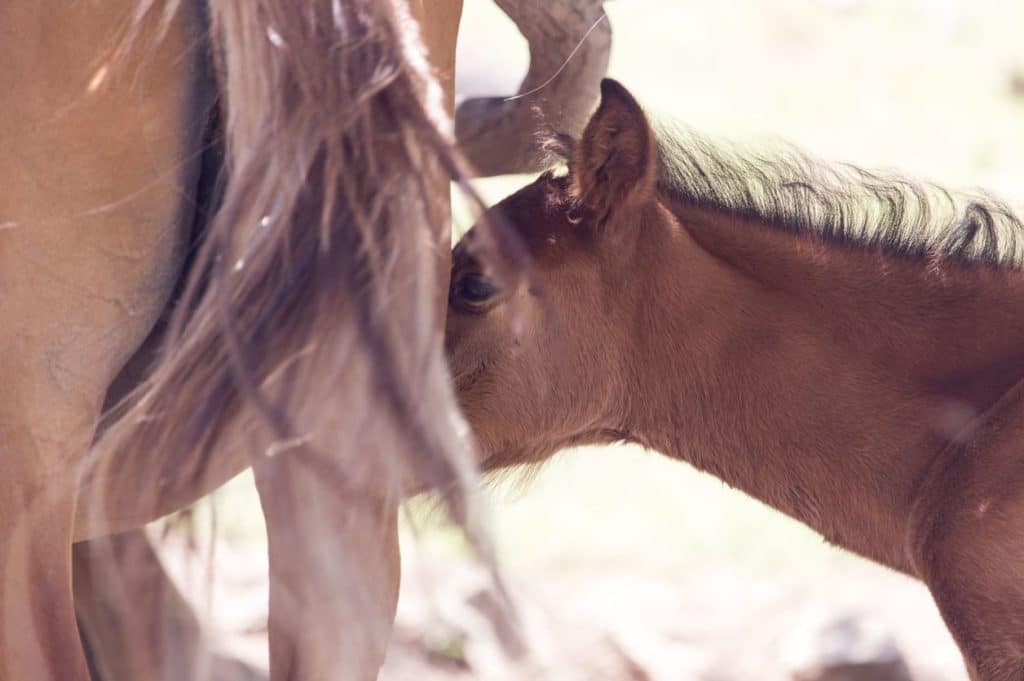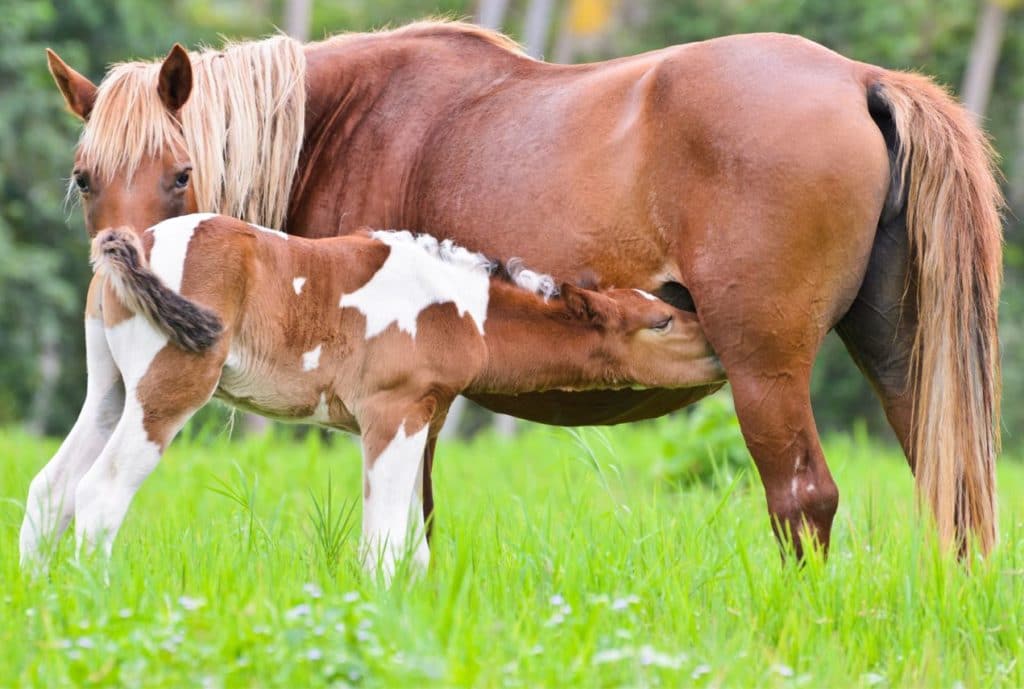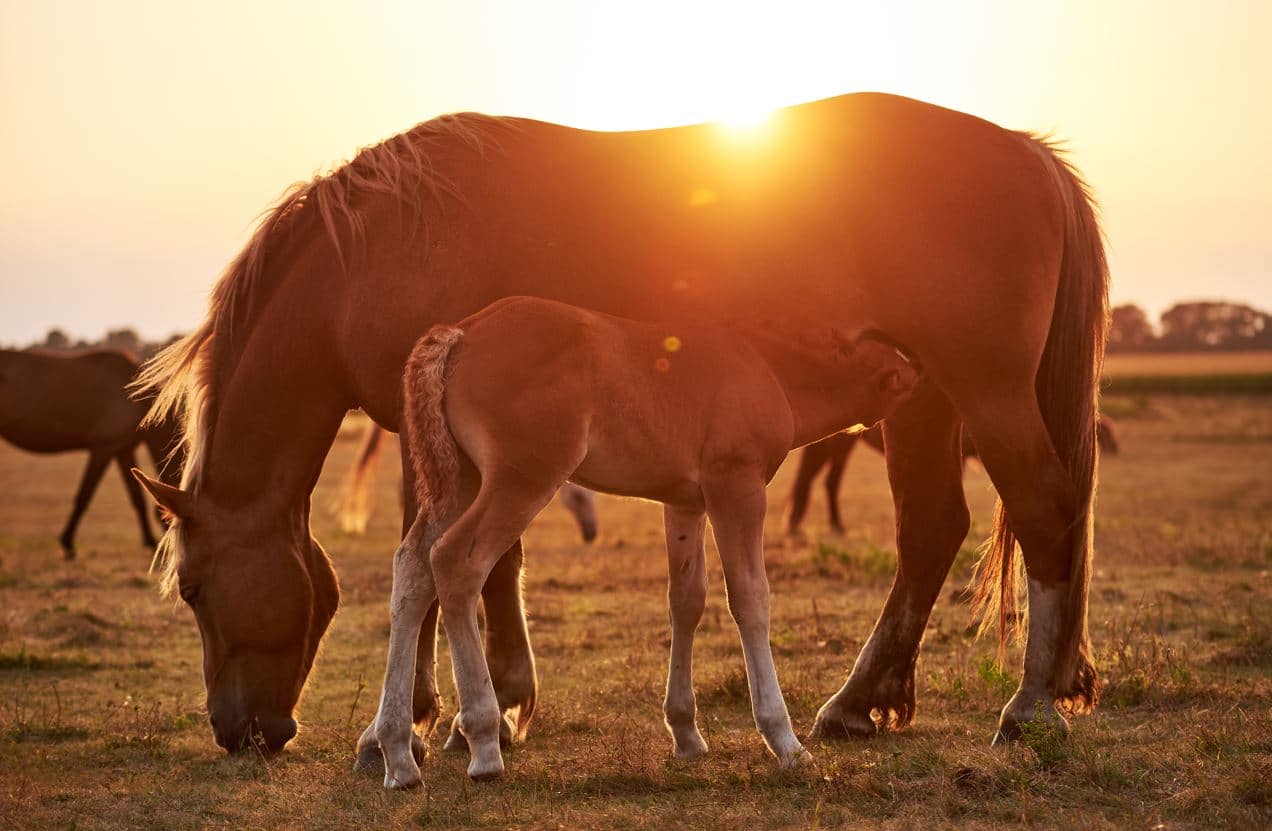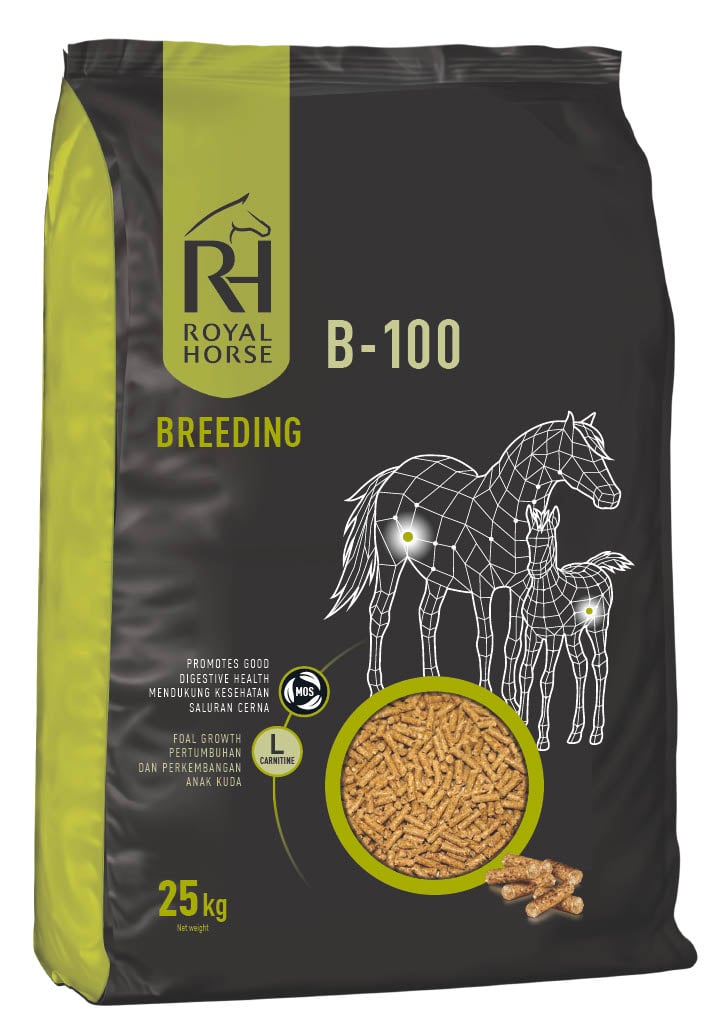Many breeders underestimate the nutritional needs of mares during the last three months of pregnancy and the first three months of lactation.
To accompany a mare during lactation
The lactation period
This is a critical period for the mare and her foal. However, lactation problems can be alleviated by a special feeding program during the last three months of gestation to ensure that the mare does not overly deplete her reserves and that peak lactation occurs at the time of foaling.


The key to good lactation
Good nutrition is necessary for healthy lactation in mares.
The mare’s protein and energy requirements are almost doubled when moving from late gestation to lactation.
An important contribution of breeding feed, rich in quality proteins, is the guarantee of a good start in lactation and of quality milk.
For example, the daily energy requirements of a 500 kg mare are as follows
- Last three months of gestation: 5 CFU or 15 400 kcal (ED)
- First month of lactation: 11 CFU or 33,880 kcal (ED) and 950 g of HDNM (horse digestible nitrogen)
- 2nd and 3rd month: 10 CFU or 30 800 kcal (ED) and 770-880 g of MADC
- 4th month: 7,5 CFU or 23 100 kcal (DE) and 660 g of MADC.
CAUSES OF LOW MILK PRODUCTION IN MARES
The consequences of undernourishment
Mares that are underfed during lactation draw on their body reserves to try to feed their foals properly and will begin to lose body condition and not properly cover the foal’s important needs.
In addition, a rebreeding in these conditions has little chance of success because it will have degraded the fertility of the mare.
They soon have trouble producing enough milk and the foals will soon show signs of poor development.
The consequences of overfeeding
On the other hand, overfed mares, especially those on rations with excessive grain (excess starch), will be prone to fat deposits around the teat that are not conducive to good milk production.
The Royal Horse solution
Very specific breeding feeds, such as the Royal Horse B range, must be given to mares during lactation.
Consider contacting your veterinarian and specialized technician for advice.
Royal Horse recommendations : B-100 for the mare – complementary forage feed for breeding horses, complementary pelleted forage and/or grass feed & VIA Milk, infant formula for the foal




